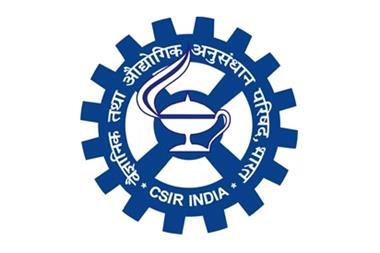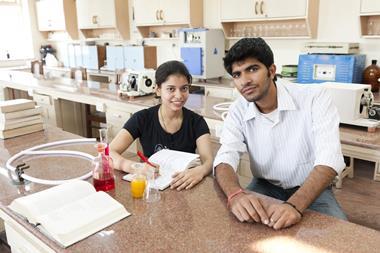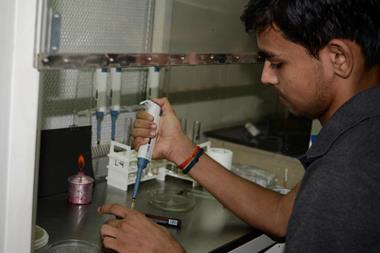Fears voiced that the Indian government is helping to undermine science with focus on untested ancient beliefs
Indian scientists have been criticised in the past for burying their heads in the sand rather than engaging with political or societal controversies, limiting their complaints to the poor state of science funding. But over the past three years, they have uncharacteristically organised online petitions and protest marches to express their concerns that the government, besides neglecting science funding, is turning a blind eye to – or sometimes even supporting – the spread of unscientific or pseudoscientific ideas.
The latest protests took place on 9 August when an estimated 12,000 scientists took part in a March for Science in 40 cities across India, organised by the Breakthrough Science Society (BSS). The marchers had two key demands: that the government allocate at least 3% of GDP to R&D and end the ‘propagation of unscientific, obscurantist ideas and religious intolerance’ as mandated by the Indian constitution.
In India, there is a realisation now that there is a domestic attack on science
Prabir Purkayastha, Delhi Science Forum
They also petitioned India’s prime minister Narendra Modi. Besides concerns over science funding, the BSS letter stated: ‘In recent times the attempts to spread unscientific beliefs and superstitions are on the rise. Sometimes, unscientific ideas lacking in evidence are being propagated as science, patronised by persons in high positions. This is vitiating the cultural atmosphere of the country.’ It also added: ‘To make things worse, even untested and unscientific ideas are being introduced into the school textbooks and curricula.’
Scientific space squeezed
’This is the first time that so many scientists in India have come together in a march,’ says Soumitro Banerjee, a professor of physics at the Indian Institute for Science Education and Research, Kolkata, and general secretary of BSS. Banerjee tells Chemistry World that he feared that ‘a mentality of accepting beliefs without evidence is being propagated in the country’, especially in the younger generation, which ‘will curtail the space for science in the future generations. Science is not a set of beliefs. It is essentially a way of thinking. That is being undermined in India.’
The unease in sections of India’s scientific community over the growing influence wielded by right-wing Hindu groups in scientific issues can be traced to the murder of three rationalists. The first murder occurred during Manmohan Singh’s administration, and was blamed on right-wing groups. Anti-superstition activist Narendra Dabholkar was killed in August 2013 and this was followed by the murder of communist leader and writer Govind Pansare in February 2015 and the academic Malleshappa Kalburgi in August 2015, which sparked protests by Indian authors and academics. The murder of a Bangalore-based journalist, Gauri Lankesh, a strident critic of right-wing politics, on Tuesday is chillingly similar to Kalburgi’s.
Thiagarajan Jayaraman, professor and chair of the Centre for Science, Technology and Society at the Tata Institute of Social Sciences, Mumbai, describes-Dabholkar, Pansare and Kalburgi as ‘prominent advocates of rationality’ who campaigned against superstition and promoted science.
Making their voices heard
In Oct 2015, Indian scientists launched two online petitions against the killings, while the Inter-Academy panel on Ethics in Science issued a statement that noted that the Indian constitution mandates that Indian citizens ‘abide by and uphold reason and scientific temper. Scientific temper encompasses rationality, rights and responsibility in equal measure.’
If scientists do not speak up for science, who else will?
K S Rajani
In April, BSS president Amitabha Datta released a statement expressing concern over the announcement that ‘vastushastra’ – the traditional Hindu system of architecture – would be introduce to undergraduate and postgraduate architecture courses at the Indian Institute of technology (IIT), Kharagpur. ‘It is highly objectionable to introduce untested beliefs into academic curricula because the students will be marked on the basis of their adherence to these beliefs,’ the statement read.
Also causing concern among many scientists is the government’s perceived push towards research on the benefits of cow products – cows are considered sacred by Hindus. IIT Delhi has been asked to coordinate research to validate the benefits of a mix of five cow products, including dung, urine and milk, called ‘panchagavya’.
‘It is one thing to research on indigenous breeds of cows, and their milk yield and quality, which has been done for decades by institutes such as the National Dairy Research Institute, and Indian Veterinary Research Institute,’ points out K S Rajani, former head of biology at Presidency College, Bangalore. ‘But why set up a national unit to validate cow products alone?’
‘In India, there is a realisation now that there is a domestic attack on science in recent years,’ says Prabir Purkayastha of the Delhi Science Forum. ‘Scientific institutions had a certain kind of autonomy from this kind of interference from the government.’
Pseudoscience or traditional knowledge?
But there are scientists who argue that traditional knowledge shouldn’t just be dismissed as pseudoscience. ‘There are no two opinions on the issue of science funds,’ says Tapasya Srivastava, assistant professor of genetics at Delhi University South Campus. ‘But scientists do differ on the pseudoscience issue. India has had enormous traditional knowledge, for example, in medicine and astronomy, which cannot be ignored.’
Modi has not helped matters, however, when he claimed in 2014 that the elephant-headed Hindu deity Ganesha was proof of ancient Indians’ mastery over transplantation and plastic surgery. And in January 2015, at the country’s largest annual science meeting in Mumbai, the Indian Science Congress organised a session on Vedic science in which a Sanskrit professor claimed that ancient Indians flew planes long before the Wright brothers.
This is not the first time a Bharatiya Janata Party (BJP) led government has courted controversy over its support for contested theories. Under the previous BJP-led coalition government, former science minister Murli Manohar Joshi introduced Vedic astrology as a science course in universities in 2001. An institute under the Council of Scientific and Industrial Research also undertook research on the benefits of cow urine.
Scientists who took part in the August march say that they intend to maintain their momentum to oppose the spread of unscientific ideas. They will meet later this month to plan their next moves.‘If scientists do not speak up for science, who else will?’ says Rajani.












No comments yet